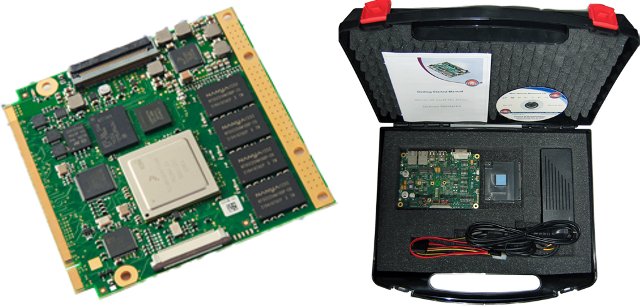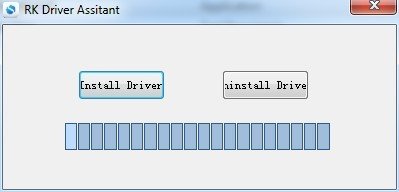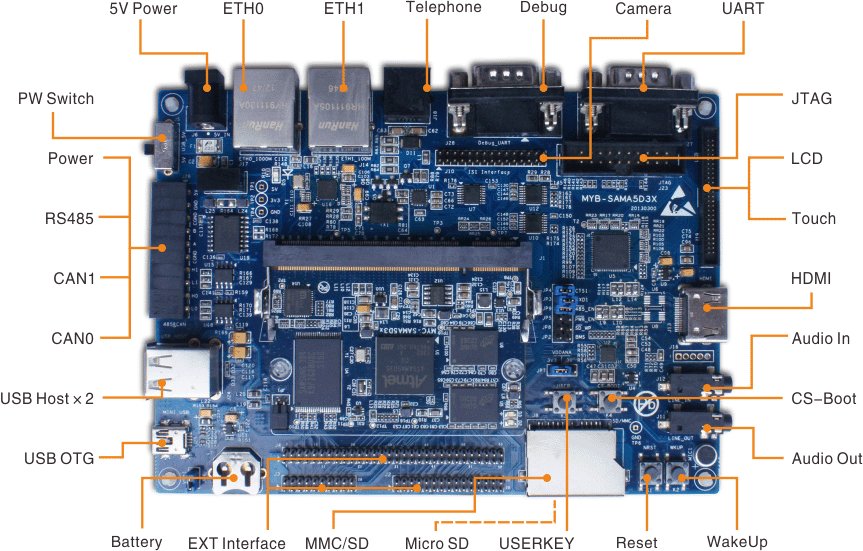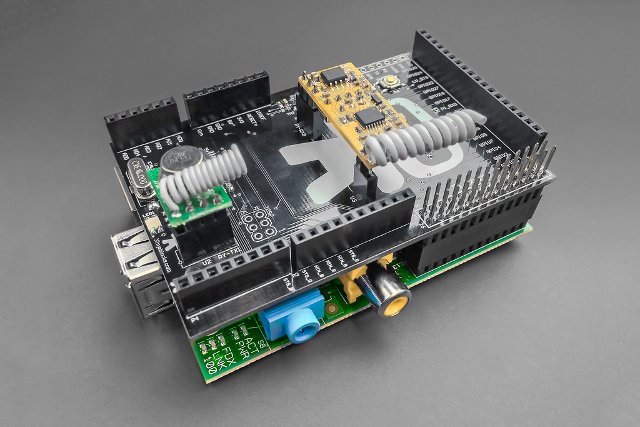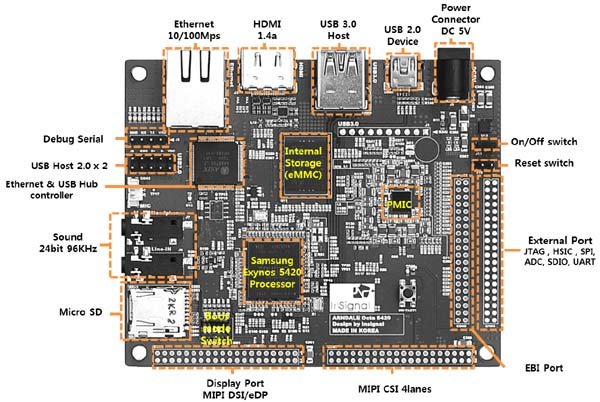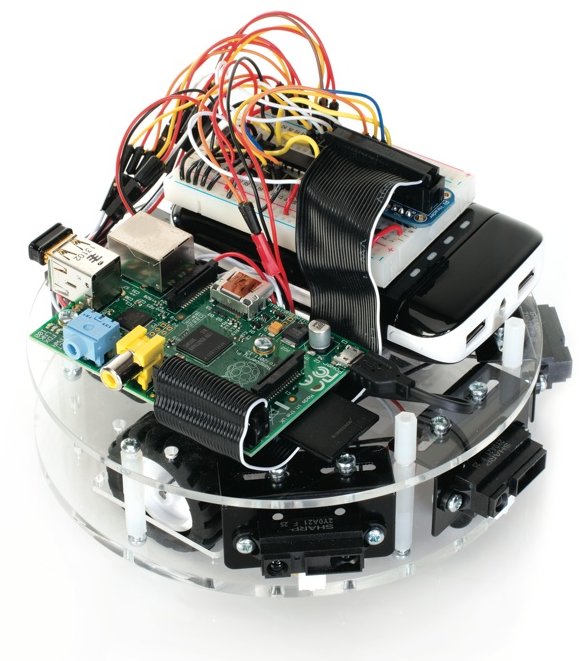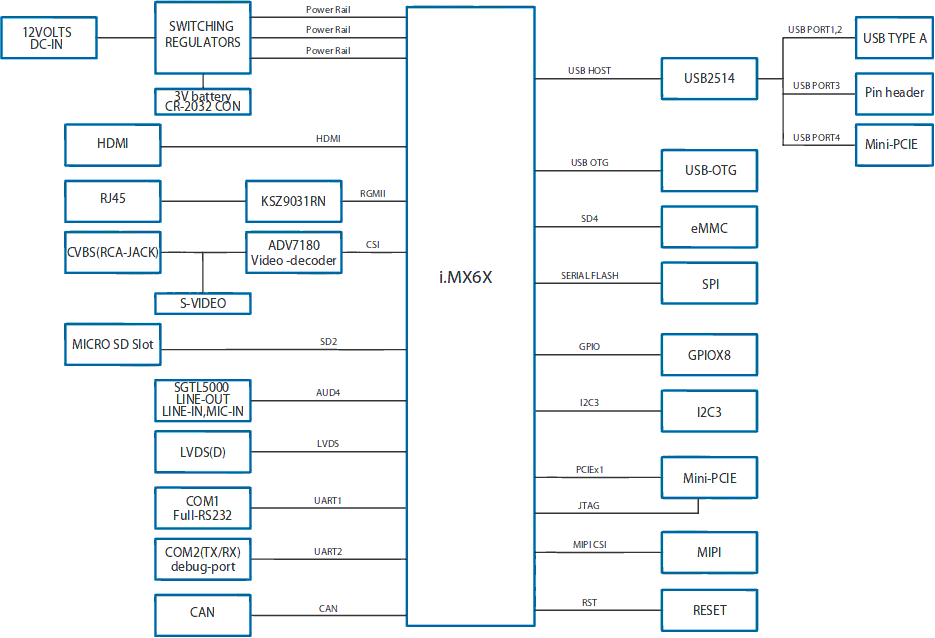MSC Embedded, a company specialized in the design and manufacturing of embedded boards, has recently announced MSC Q7-MB-EP4, a complete Starterkit for the company’s Qseven modules based on Freescale i.MX6 Solo, Dual or Quad processors. The starter kit comes with a suitcase comprise of a heatspreader with heatsink, a 12V power supply, a cable kit (SATA data and power cable), a DVD, a getting started guide, and more importantly a 3.5″ Qseven carrier board (Q7-MB-EP4) with socket for Qseven modules Rev. 1.20 with the following specifications: CPU Module Interface – Socket for Qseven Rev. 1.20 compatible modules based on the Freescale i.MX6 Storage – 1x SATA connector + mSATA Socket with support for mSATA and mSATAmini cards, MMC/SD Card, and serial EEPROM for EPI/DP extensions Standard Interfaces: 7x USB 2.0: 4x USB (Series-A Jack), 1x USB internal pin header, USB on mini USB connector, USB at Mini PCI Express socket […]
Dell Venue 8 Pro Windows 8.1 Tablet Used as Desktop PC with 4 Monitors
I’ve seen several attempts using a mobile device such as a tablet or smartphone as a desktop, such as using the Galaxy Nexus with an HDMI monitor via MHL, and Canonical’s Ubuntu for Phones and Tablets. The first solution runs Android, an operating systems not (yet) really suitable for desktop use, and Canonical solutions are still work in progress. But the recent video demonstration shown by Bernie Thompson, Plugable Technologies’ founder, with a Dell Venue 8 Pro tablet (about $300) powered by Intel Atom Z3740D “Bay Trail” processor and running Windows 8.1, is the first one which seems actually usable for most desktop uses, baring high-end gaming, or other tasks where the quad core Intel Atom processor may not provide enough processing power. The full setup works as follows. The Dell tablet is connected to a universal USB 3.0 docking station (UD-3000) via a micro USB OTG cable. The docking […]
DriverAssistant – Simplified Method to Install Rockchip USB Drivers in Windows XP/7/8/10
When you need to root or upgrade Rockchip RK3066 or RK3188 devices, you’ll usually have to connect your device to your computer via USB, and in Windows, installing specific drivers (ADB drivers) is usually needed. However, many people seem to have problems with installing the proper driver, and their device may not be recognized properly. To simplify the task for Windows users, Rockchip has written a tool called RK Driver Assistant to automatically install the correct drivers on different Windows versions. Here’s how to install the drivers with this tools.There’s no need to connect your Rockchip device during this procedure. Download and extract RK_DriverAssitant.zip [Update: More recent versions of the tools can be found in Rockchip-Linux account in Github] Double click on DriverInstall.exe in Release_DriverAssitant directory to start the utility If you’ve already tried to install USB drivers for Rockchip devices, make sure to click “Uninstall Driver” first Then click “Install […]
MYIR MYD-SAMA5D3X Development Boards Feature Atmel ARM Cortex-A5 SAMA5D3 Processors
MYIR Tech, a company based in Shenzhen, and ARM Connected Community Member, has recently made available MYD-SAMA5D3X boards powered by Atmel ATSAMA5D3 ARM Cortex-A5 embedded MPU. Like many development boards, thise are composed of a baseboard coupled by a 200-pin SO-DIMM computer-on-module (CoM) featuring one of the four Atmel SAMA5D3 processor: SAMA5D31, SAMA5D33, SAMA5D34 and SAMA5D35. The boards all feature 512MB DDR2 SDRAM, 256MB Nand Flash, 16MB Nor Flash and 4MB Data Flash on board. Typical applications developed with these boards include control panel/HMI, smart grid, medical and handheld terminals, outdoor GPS, DECT (digital enhanced cordless telecommunications) phones, and more. MYD-SAMA5D3X boards specifications: Processor – Atmel SAMA5D31, SAMA5D32, SAMA5D34 or SAMA5D35 Cortex A5 up to 536MHz with 128KB of SRAM and 160KB of ROM System Memory – 512MB DDR2 SDRAM Storage – 256MB NAND Flash, 4MB Data Flash, 16MB Nor Flash, one MMC/SD card slot, and one microSD card slot Peripheral […]
Ninja Pi Crust Let You Connect Arduino Shields to the Raspberry Pi
There are quite a few projects using both the Raspberry Pi and an Arduino board and its shields together. These are working but the cabling may get messy. People have already found solutions to plug Arduino shields into the Raspberry Pi with products such as Cooking Hacks’ Raspberry Pi to Arduino shield connection bridge (40 Euros) or Open Electronics’ Raspberry Pi bridge (22.50 Euros). Those two boards are fine, but do not include an Atmel MCU, and use Raspberry Pi GPIOs directly, except for their ADC. Another solution is the Paperduino Pi, a DIY Arduino board that can be plugged on top of the Raspberry Pi, and compatible with Arduino shields. But if you want an Arduino board that can easily be stacked between the Raspberry Pi, and Raspberry shield, the upcoming Ninja Pi Crust by Ninjablocks may be an interesting option, especially if you plan to use the 433MHz […]
$179 Arndale Octa Developement Board Gets an Upgrade to Exynos 5420 big.LITTLE SoC
Hardkernel ODROID-XU may have been the first low cost big.LITTLE development board, but since it’s using Exynos 5410 SoC, big.LITTLE processing is limited to cluster migration that means using A15 cores or A7 cores. Insignal’s Arndale Octa was also initially announced with Exynos 5410, but the good news is that we’ll soon get a fully functional big.LITTLE development board as Arndale Octa has been upgraded to Exynos 5420 Octa-core SoC. This board will support both In-Kernel Switching (IKS) and Global Task Scheduling (GTS) implementations, and be officially supported by Linaro like the first Arndale board based on Exynos 5250 dual core Cortex A15. Here are the specifications of the board (derived by me from several pages, and pictures): SoC – Samsung Exynos 5420 octa core SoC with 4x Cortex A15 cores up to 1.8 GHz, 4x Cortex A7 cores up to 1.3 GHz in big.LITTLE configuration, and ARM Mali T-628 […]
Frindo Open Source Robotics Platform for Arduino and Raspberry Pi Boards
Frindo is both a community and an open source robotics platform designed to work with Arduino, Raspberry Pi, and possibly other micro-controller boards. The platform is said to have been designed as an educational platform so that beginners can start with a simple robot, and build a more complex robot as their skills grow. There are currently three Frindo kits available from RobotBits.co.uk: Frindo chassis only kit for £64.95 (~$104) – Chassis plates, motors, wheels, wheel brackets, Arduino & Pi mounting kit & all hardware. Frindo Arduino kit for £110.95 (~$178) – Chassis only kit + Arduino, RobotShield, battery clip, power cable & USB cable Frindo Arduino kit plus sensors for £159.9 (~$257) – Arduino kit + 3x each: GP2Y0A21 analog distance sensors, bracket, cable & fixings The RobotShield is an Arduino shield optimized for mobile robotics applications with the following features: Dual bi-directional motor driver circuit (2 Amp Peak, […]
VIA Unveils VAB-820 Pico-ITX Board Powered by Freescale i.MX6 Quad
About two weeks ago, VIA announced the VAB-820, which according to the company, is the first ARM based quad core Pico-ITX single board computer (SBC) on the market. A claim that looks to be incorrect by the way. The board is powered by Freescale i.MX6Quad quad core ARM Cortex A9 processor, and comes with 1GB DDR3 SDRAM and 4GB eMMC Flash. This is an industrial board targeting in-vehicle, surveillance and industrial applications, designed to work in an operating temperature range from -20°C ~ 70°, and with a seven years longevity support. VAB-820 Specifications: SoC – Freescale i.MX 6Quad ARM Cortex-A9 @ 1.0GHz with Vivante GC2000 GPU System Memory – 1GB DDR3-1066 SDRAM using 128M x16 memory devices Storage – 4MB SPI Serial Flash, 4GB eMMC Flash, and microSD slot (up to 64GB) Connectivity – Gigabit Ethernet using Micrel KSZ9031RNX Ethernet transceiver with RGMII support Audio – Freescale SGTL5000 low power stereo […]


